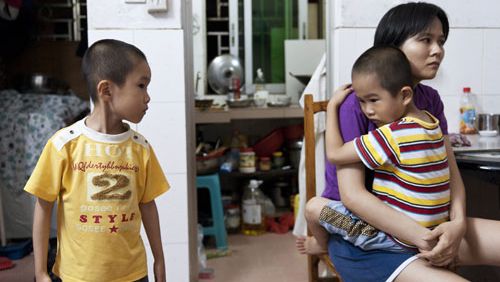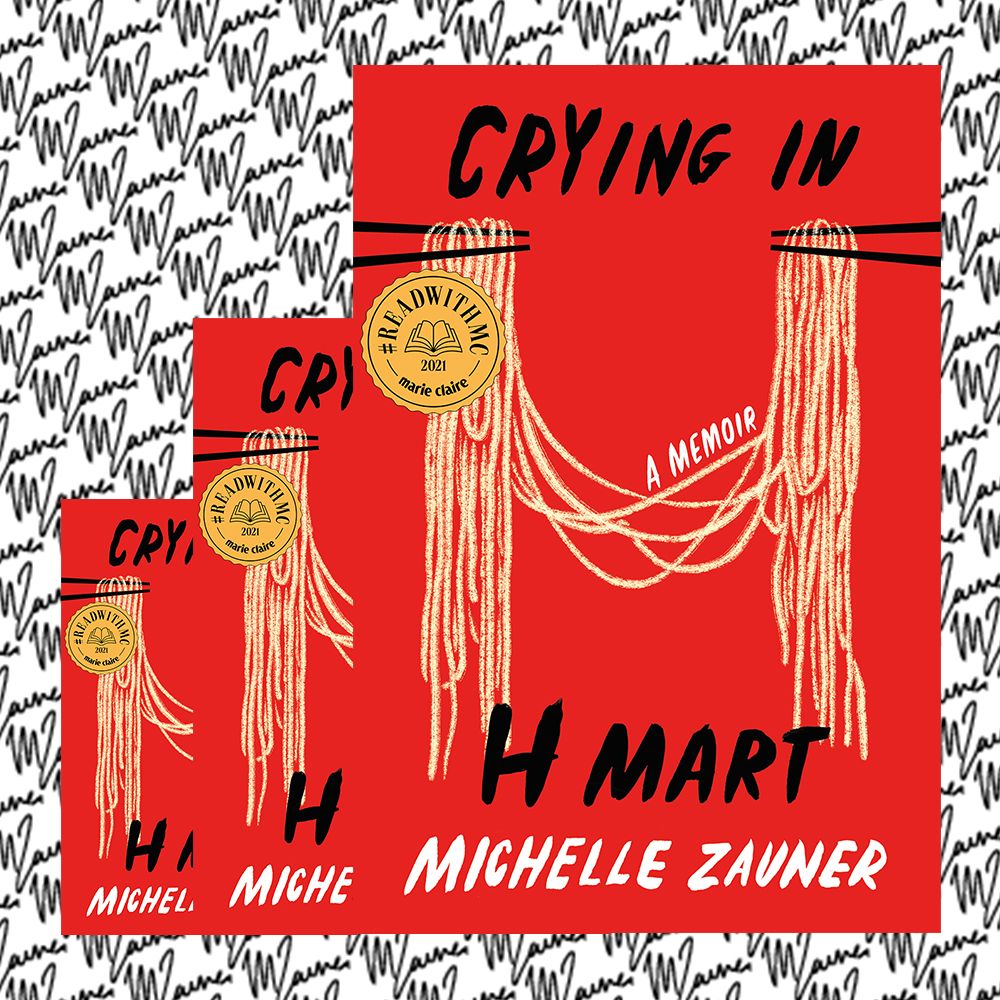Breaking China's One-Child Law
In an unprecedented crackdown, Chinese officials set out to sterilize 10,000 women — by jailing their relatives until the women submitted.

During lunchtime one day last April, Wei Laojin, 35, was cooking spicy pork for her two young sons at home in southern China when she got a frantic call from her husband. His brother had been arrested, he said. A dozen Chinese officials had beaten down the man's door and dragged him away. "What has he done wrong?" Wei asked in alarm. "Nothing," her husband replied. "He has been jailed because he is related to us."
Wei, a bird-thin woman with bobbed hair, let lunch burn on the stove as she heard more. "My husband said we had broken the law by having two children. The authorities were imprisoning his brother until we were punished," she says. "As soon as I learned it was about birth control, I began to cry and shake." Family-planning officials in the southern county of Puning, in Guangdong province, were going to shocking new extremes to catch and punish violators of the country's infamous one-child policy: They were seizing family members of women who had given birth illegally and were holding them hostage. The aim? To coerce the women into submitting to sterilization. Says Wei, "The officials said there was only one way to get my brother-in-law released: I had to undergo forced sterilization."
As Wei panicked in her kitchen, the same scene was playing out in households all over Puning, a region of 2.2 million people, about six hours by bus from the provincial capital of Guangzhou. In early April, the local Family Planning Bureau, which oversees population control, launched what it termed an "Iron Fist Campaign," targeting 10,000 women who had more than one child.
According to state-owned media—which proudly reported the news on local channels—a task force of more than 600 officials was deployed to storm homes across 28 Puning townships and seize family members of women who had broken the law. They took grandparents, siblings, teenagers, even infants. The relatives were to be jailed indefinitely until the targeted women showed up at government clinics to undergo "remedial surgery," or sterilization.
The campaign was unprecedented in recent Chinese history. According to He Yafu, one of China's leading independent experts on family planning, there had been occasional reports of relatives being detained in the past, and forced sterilization has been an abuse associated with the one-child policy since it was introduced in 1978, but this was a crackdown on an unusually large and draconian scale.
Certainly, the campaign came out of the blue for most Puning inhabitants. Family planning in the region had grown lax because the local population had been consumed with breakneck economic development. Guangdong province is the most successful manufacturing region in mainland China, with a per capita income of $5,965—almost twice the national average. A snaking backdrop of lush green mountains is rapidly being devoured by urban sprawl, and the air is clogged with construction dust. "People in the south are different. They feel that laws in the rest of the country don't apply to them," says Chinese economist Dean Peng. "It seems that many people here believed they could have a large family without serious repercussions."
Wei, a seamstress, was well aware she had breached the one-child policy by having two sons, Xiaojie, now age 6, and Xiaoming, age 4. (In deference to China's ingrained preference for sons, the government sometimes allows couples to have a second child, but only if the firstborn is a girl.) As punishment, the authorities refused to officially register the younger boy, who is mildly disabled, thereby denying him access to state health care and education. The family was also ordered to pay a fine of 5,000 yuan ($750), amounting to a third of their annual income (the heaviest fines for birth-policy violators are up to six times a couple's annual income). Wei knew there would be consequences to having two kids, but says, "Children mean happiness to people here. The bigger your family, the greater your joy. It's as simple as that."
Stay In The Know
Get exclusive access to fashion and beauty trends, hot-off-the-press celebrity news, and more.
The Chinese government disagrees. As the world's most populous country, with 1.4 billion people (one in five humans worldwide is mainland Chinese), the state believes limiting the birth rate is vital to preserving resources and creating sustainable economic growth. In the past, when most people worked in state-owned factories and on farms, officials enforced family-planning quotas with brutal efficiency. Their methods included giving women forced abortions up to even the ninth month of pregnancy, and smothering newborns and dumping them in the trash. Female workers were required to prove they were menstruating by showing supervisors a soiled sanitary napkin every month. But as the country has gradually abandoned mass state enterprise in favor of private commerce, authorities have had to resort to even more inventive methods to keep tabs on women and prevent illegal pregnancies.
Interestingly, headlines in the U.S. this year have said that China is "relaxing" its birth-control laws. The reports emerged due to possible pilot programs to allow two children per family in cities such as Shanghai and Beijing, where births have fallen too dramatically. But the government denies that regulations are being eased nationwide, and the hostage campaign confirms that.
Wei loves her country—there's a giant map of her homeland in her living room—but thinks family comes first. In fact, she wanted a third child: "I desperately wanted to have a daughter so my two boys would have a little sister and I'd have a female ally in the family. We were saving up to try for a girl." She was out of time. After her husband's call, Wei left the boys with a neighbor and rushed to the grim government lockup where her brother-in-law Hong-Li, 51, was being held. "The guards deliberately let me see how bad the conditions were. Hong-Li was in a damp, cramped cell with more than 100 other people. There was standing room only and no blankets or food," says Wei. "It was unbearable to see him suffering." The sense of duty toward family in traditional China is precisely why the authorities employed the tactic of jailing relatives. "It was blackmail," says Wei. "I knew my brother-in-law could lose his job if he stayed in jail, and he has children of his own to feed. I had no choice but to comply with the authorities."
Across Puning county, by mid-April, a total of 1,377 relatives of birth-policy offenders were being detained, state media reported. Many of them were elderly—couples' retired parents who had the misfortune to be home when officials targeted their houses. Meanwhile, surgeons at government clinics were sterilizing hundreds of women daily. A doctor named Zeng told Puning TV: "We are working nonstop from 8 a.m. through 4 a.m. to complete the mass sterilization program."
In tears, Wei presented herself at her township family-planning clinic—a concrete building that looks plain enough, except for a sign bearing the slogan: "Have Fewer Children. Eugenics for a Happy Life, a Happy Family, and a Harmonious Society." She told officials she would have the surgery, but asked if they would wait because she had her period. (To prevent complications, experts say sterilization should not be performed until at least three days after the end of menstruation.) They refused. "They wouldn't even let me take a shower," says Wei. "Before I knew it, I was on an operating table in a room where three other women were also being sterilized under local anesthetic."
Today, family life with her husband and two boisterous boys has returned to normal, on the surface. Her brother-in-law was freed (he describes his incarceration as "intolerable," but says he doesn't blame Wei), and he kept his job. Yet Wei can't move on. She says she feels violated, and is still suffering from bouts of crying. "Everyone says it's over, forget about it," she says. "But I have to speak out because if I don't, who will know this ever happened? Family-planning officials locked up hundreds of people and forcibly sterilized mothers, and nobody is even talking about it anymore."

She's right. Although Puning's "Iron Fist Campaign" was reported on local news, it made no major headlines in the rest of China or anywhere else. In the two-month period from mid-April to mid-June, officials claimed they had successfully sterilized more than 9,000 women of their targeted 10,000, and planned to continue until their goal was reached. He Yafu, the family-planning expert, believes the central government has hushed up the matter because the Puning Family Planning Bureau's actions were illegal under Chinese law: A 1995 regulation states that relatives of birth-policy offenders must not be penalized, detained, or used to pressure couples. However, he adds, "The central government uses such rules to pretend it condemns extreme measures to enforce the one-child policy, but it does nothing to punish local authorities that break them. It just turns a blind eye."
Puning officials claimed they took the extreme measures to reduce births in line with national quotas. According to the Nanfang Countryside Daily, a local newspaper, regional Communist Party Chief Chen Hong-Ping had recently come under fire for falling behind with one-child-policy enforcement, and he risked losing a promotion. Chen ordered the campaign to rapidly improve his numbers. "Our mission is to substantially change the family-planning situation to meet targets," the newspaper quotes Chen as saying. Chen declined to be interviewed by Marie Claire, but the man who carried out his orders, the head of Puning's Family Planning Bureau, Liang Hong-Yu, is happy to boast about the crackdown's success. "We have made great strides re-educating the public about the negative effect of large families and overpopulation," he says. "We are very happy with the campaign's achievements."
For Huang Ruifeng, 39, a Puning native who runs his own agricultural-supply business, the family-planning crackdown has had tragic consequences. Huang is reluctant to be seen with a Western journalist in daylight. He agrees to meet late at night in a gaudy sports bar, where the ruckus of fans watching Chinese soccer on giant screens drowns out conversations. Wearing a crisp peach shirt, he is freshly shaven, but his eyes are red with grief.
Huang and his wife, Zheng, had three daughters, and Zheng was eight months pregnant with their fourth child—a much-wanted boy—when officials smashed the roof of his family home. They arrested Huang's elderly father and jailed him, to force Zheng to turn herself in. "We begged them to let her give birth to our son first, and promised she would undergo sterilization after, but they refused," says Huang.
Terrified that officials would force her into a late-term abortion if she complied, Zheng went into hiding. While Huang minded his three daughters at home, his younger brother took on the task of ferrying food and clothing to their father in jail. "Our father quickly grew weak and exhausted," he says. "My brother worried himself sick."
Huang's father had been kept in detention for over a month by the time Zheng safely gave birth to their son, and presented herself for sterilization. "Officials finally released my father. But the day after he came home, my brother, who'd been caring for him nonstop, suffered heart failure and died," says Huang, contorting his face in anguish. Huang believes his 37-year-old brother was killed by the anxiety caused by the ordeal. He is angry at what he calls the "futility" of the hostage campaign. But sadly, he also blames himself: "I had to choose between letting my father suffer and protecting my wife and unborn son. In the end, it was my brother who was the biggest victim of my decision."
Huang's brother was not the only fatality. The pressure on low-ranking family-planning officials to round up relatives was so intense, one official reportedly died of a heart attack after working 20-hour days for two months.
Chen Xianye, 28, a young mother with a smiling, moon-shaped face who runs a stationery store in a busy market area, says the campaign terrorized the entire community. "I saw everything from my shop," says Chen, who has one daughter. "Family-planning officials camped out on every street corner and grabbed anyone who had children with them as they passed by."
However, at least one woman escaped sterilization, thanks to her mother's determination. Says Zhang Xiaoxue, 32, a clothing-store owner with two children, "Officials arrested my 64-year-old mother and said they would keep her in jail until I underwent sterilization. But my mother told me she would rather die than let the government butcher me like an animal." Zhang says she was tormented by her mother's imprisonment, but followed her wishes. "She stayed in prison for three weeks while I hid. She got so thin, they feared she might die, so they eventually released her. They could tell she wasn't going to give in."
Now her mother is bedridden due to rheumatism that flared up in jail. Zhang says she is eternally grateful to her for standing up to the "government kidnappers." She adds, "The irony is, I don't want to have more children. But her sacrifice showed me that I should be allowed to make that choice on my own."
Abigail Haworth is Marie Claire's senior international editor.
-
 This New $235 Face Cream Turned My Dark Spots Into a Disappearing Act
This New $235 Face Cream Turned My Dark Spots Into a Disappearing ActSee it to believe it.
By Samantha Holender
-
 Netflix's 'North of North' Transports Viewers to the Arctic Circle—Meet the Cast of Inuit Indigenous Actors
Netflix's 'North of North' Transports Viewers to the Arctic Circle—Meet the Cast of Inuit Indigenous ActorsThe new comedy follows a modern Inuk woman determined to transform her life.
By Quinci LeGardye
-
 Princess Beatrice's Husband Pays a Rare Tribute to These Royal Family Members on Instagram
Princess Beatrice's Husband Pays a Rare Tribute to These Royal Family Members on InstagramEdoardo Mapelli Mozzi shared some behind-the-scenes snaps from the F1 Grand Prix in Bahrain.
By Kristin Contino
-
 In 'Zurawski v. Texas,' the Post-Dobbs Reality Is Darker Than You Could Have Imagined
In 'Zurawski v. Texas,' the Post-Dobbs Reality Is Darker Than You Could Have ImaginedA new documentary, produced by Hillary and Chelsea Clinton, and Jennifer Lawrence, shows just how catastrophic anti-abortion bills are—and what’s at stake if we stop fighting them.
By Jessica Goodman
-
 Of Murder and Motherhood
Of Murder and MotherhoodTheir children are gone but these women are united in their fight for justice and answers.
By Katya Cengel
-
 60 Gifts for Mom She'll Truly Love
60 Gifts for Mom She'll Truly LoveFrom creature comforts to luxe indulgences.
By Sara Holzman
-
 'Skye Falling' Deserves a Spot on Your Summer Reading List
'Skye Falling' Deserves a Spot on Your Summer Reading ListIn July, Marie Claire read Mia McKenzie's 'Skye Falling.' See what the #ReadWithMC community thought about the book here.
By Marie Claire
-
 What to Know About Adria Biles, Simone Biles' Sister and Biggest Supporter
What to Know About Adria Biles, Simone Biles' Sister and Biggest SupporterFeatures Here's what to know about the Team U.S.A. gymnast's supportive, lookalike sis.
By Katherine J. Igoe
-
 Melissa Moore's 'Life After Happy Face' Podcast Looks at Killers Through New Eyes
Melissa Moore's 'Life After Happy Face' Podcast Looks at Killers Through New EyesThe true crime expert and daughter of the Happy Face Killer opens up to Marie Claire about destigmatizing the label of 'criminal's kid.'
By Maria Ricapito
-
 Won't Call the Midwife
Won't Call the MidwifeWith high rates of maternal mortality and coercion in hospital settings, more American women are exploring childbirth without any medical assistance whatsoever. The Free Birth Society provides community, resources, and validation for these convention buckers. But experts warn that choice comes at the expense of safety.
By Rebecca Grant
-
 Michelle Zauner's 'Crying in H Mart' Is Deeply Moving
Michelle Zauner's 'Crying in H Mart' Is Deeply Moving"She made me want to eat and cry at the same time..."
By Rachel Epstein